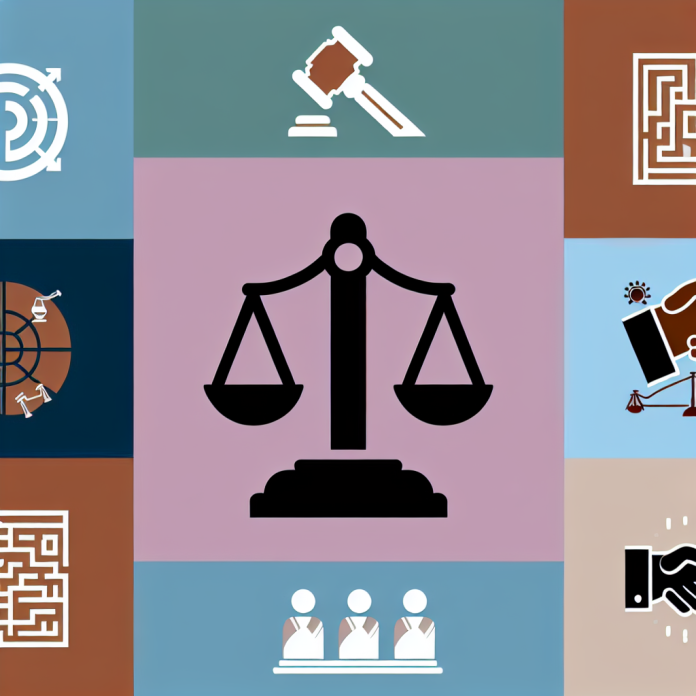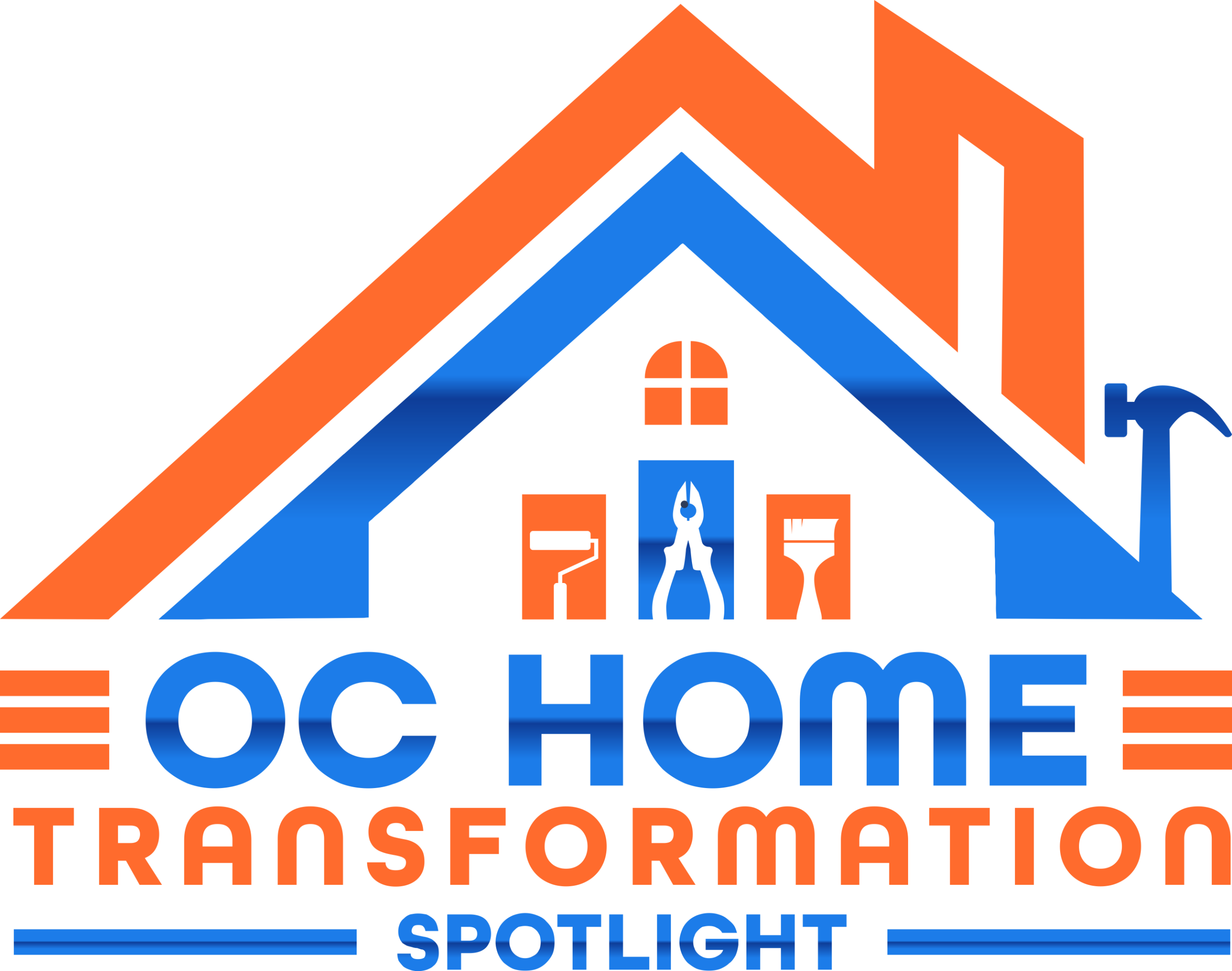In a significant move for workplace civil rights, the Senate has confirmed Andrea Lucas for another term with the Equal Employment Opportunity Commission (EEOC). This confirmation reflects strong Republican Senate support for Lucas’s initiatives aimed at dismantling diversity programs and reducing protections for transgender employees, concepts that have sparked a national debate. Critics argue her leadership is a step backward in advancing civil rights, while supporters emphasize a renewed focus on religious rights in the workplace. As the EEOC continues to assert its influence, Lucas’s role at the helm marks a pivotal moment in shaping the agency’s future and its policies regarding workplace equality. With her confirmation now official, the impact on workplace protections and civil rights advocacy will be closely monitored by both sides of the political spectrum.
The recent confirmation of Andrea Lucas as a commissioner in the nation’s leading labor rights organization has created a ripple effect across discussions surrounding employment equality. Lucas’s appointment, celebrated by her Republican colleagues, signals a potential shift away from established diversity initiatives and highlights a renewed focus on traditional views regarding rights in the workplace. Her confirmation, sanctioned by the Senate, brings to light ongoing conversations about the enforcement of safeguards for marginalized groups, particularly transgender individuals. As debates collide over the future direction of civil rights policies, the implications of her leadership will undoubtedly shape the discourse around workplace protections and inclusivity initiatives for the foreseeable future.
The Impact of Andrea Lucas on Workplace Civil Rights
The recent Senate confirmation of Andrea Lucas as commissioner of the Equal Employment Opportunity Commission (EEOC) has raised significant concerns among civil rights advocates. Her track record suggests a shift in focus from protecting workplace civil rights to aligning with the Trump administration’s agenda. This shift may lead to alarming implications for marginalized groups, especially transgender employees, as protections could be diminished significantly under her leadership. Critics argue that Lucas’s proposals could undermine the progress made in protecting workplace civil rights for individuals who identify as LGBTQ+.
Moreover, Lucas’s plans to eliminate diversity programs threaten to roll back initiatives that promote inclusivity and equality in the workplace. Such changes ignore the importance of supporting diverse work environments that can enhance company culture and employee morale. Experts point out that diversity programs are essential for fostering a workplace that values different perspectives and backgrounds, which is crucial in an increasingly multicultural society.
Republican Senate Support for Lucas’s Confirmation
Lucas’s confirmation received strong backing from Republican senators, reflecting a political landscape that prioritizes accountability over inclusivity. This party-line vote signifies more than just a simple approval; it represents an ideological stance that favors traditional values and religious rights over the expanding rights and protections for marginalized groups. Republican senators believe Lucas’s approach aligns with their vision of reducing government overreach in workplace regulations.
This backing underscores the contentious relationship between civil rights protections and political agendas in the current climate. As Lucas embarks on her second term, her supporters express a sense of hope that she will restore balance within the EEOC, while critics fear a continuation of the agency’s drift towards policies that may harm workplace protections for vulnerable populations.
Diversity Programs Under Threat
With Andrea Lucas at the helm of the EEOC, there is mounting apprehension regarding the future of diversity programs in workplaces across the nation. Historically, such programs have been integral in promoting equality and addressing systemic discrimination, yet Lucas has openly expressed her intentions to dismantle these initiatives. Her approach raises questions about the long-term implications for workplace civil rights, especially for minority groups.
The rollback of these programs could impede efforts aimed at fostering an inclusive work environment. Many organizations have implemented diversity training and outreach programs designed to ensure fair treatment for all employees. Lucas’s negative stance towards these efforts might lead to a resurgence of discriminatory practices in hiring and promotion, countering years of progress in civil rights advancements.
Transgender Employee Protections at Risk
Transgender employee protections have come under fire since Lucas’s confirmation. The EEOC, previously a staunch advocate for LGBTQ+ rights, appears poised to withdraw from enforcing federal protections that safeguard transgender workers. Lucas’s alignment with the Trump administration’s policies contradicts the evolving societal norms that emphasize gender identity rights, raising fears among advocates and activists.
This retreat from enforcing protections reflects a broader trend of undermining civil rights achievements. Legal challenges are already arising, with organizations suing the EEOC for its refusal to support transgender individuals facing discrimination. The trajectory established by Lucas’s leadership could result in less safe and equitable workplaces for LGBTQ+ employees, ultimately reversing progress in workplace civil rights.
The Role of the EEOC Under Lucas
Under Andrea Lucas’s guidance, the role of the EEOC has shifted dramatically. Historically seen as an independent entity committed to enforcing civil rights laws, the agency’s alignment with the current political administration presents potential conflicts concerning its mission. Critics argue that Lucas’s leadership has politicized the agency, compromising its integrity and effectiveness in protecting employees’ rights.
Lucas’s recent actions, including dismissing Democratic commissioners, have drawn widespread criticism, signaling an unprecedented level of executive control over an agency designed to operate independently. This new directive risks sidelining the very purpose of the EEOC, which is to champion equitable treatment for all workers, irrespective of their backgrounds or identities.
Debating the Future of Civil Rights Agencies
The confirmation of Andrea Lucas has catalyzed a wider debate over the future of civil rights agencies in an increasingly polarized Washington. As the EEOC navigates between the push for employee protections and the current administration’s priorities, its role remains contentious. Advocates for progressive civil rights worry that Lucas’s appointment signals a regression in the enforcement of workplace protections.
This situation has sparked important conversations about how civil rights agencies should operate in a political environment defined by partisanship. With established precedents at stake, the ramifications of Lucas’s leadership may extend beyond the EEOC and influence discussions around civil rights legislation and initiatives across the nation.
Community Responses to Lucas’s Confirmation
The reaction from civil rights groups and the broader community to Andrea Lucas’s confirmation has been overwhelmingly negative. Activists and representatives from these organizations express concern that her leadership could reverse decades of hard-won employee protections. Lawsuits filed against the EEOC highlight the community’s dissatisfaction regarding its retreat from supporting transgender protections, indicating organized resistance against the current political climate.
Moreover, local and national advocacy groups have mobilized to challenge Lucas’s initiatives that dismantle diversity programs and decrease workplace civil rights protections. Activists fear that without sustained pressure and collective action, the rights of marginalized employees may be sacrificed on the altar of political expediency.
The Broader Implications of Lucas’s Leadership
Andreas Lucas’s tenure could set troubling precedents for civil rights across all sectors of employment. If the trends of reducing diversity initiatives and rolling back transgender protections continue, the consequences could ripple through workplaces nationwide. These shifts threaten not only individual rights but also the broader social contract that promotes equality and fairness in employment.
As more organizations adopt policies aligned with Lucas’s vision, the potential for discrimination and inequity in the workplace may grow. Such changes could not only impact employee morale but also influence the overall perception of companies, affecting their reputation and ability to attract diverse talent. The choices made during her tenure could resonate for years, altering the landscape of workplace civil rights.
Political Ramifications of EEOC Policies
The repercussions of new policies under Andrea Lucas’s oversight extend beyond the EEOC to the broader political landscape. By aligning the agency’s priorities with the Republican party’s agenda, Lucas might embolden similar strategies in other civil rights agencies, potentially diminishing protections and protections across the board. This could set a dangerous precedent regarding how agencies balance their enforcement roles with political influence.
The conservative shift within the EEOC presents significant ramifications for future legislation related to civil rights. As Democratic and progressive leaders push back against these changes, creating a hostile environment for bipartisan efforts, the potential for effective policy reform becomes more challenging. Ongoing debates about the agency’s direction may impact not only civil rights but also the legislative process in other areas important to workplace equity.
The Future of Diversity and Inclusion Initiatives
Looking ahead, the future of diversity and inclusion initiatives is uncertain. As Andrea Lucas emphasizes a focus on merit-based hiring, the importance of incorporating diverse perspectives may be overshadowed. This shift could stall progress made in creating workplaces that reflect the different demographics of our society, ultimately leading to homogeneity within organizations.
Businesses that prioritize diversity initiatives not only benefit from a more equitable workplace but also harness the creativity and innovation that comes from diverse backgrounds. If Lucas’s policies take hold, corporations may find themselves at a disadvantage in attracting talent that values inclusivity. The potential abandonment of such initiatives could negatively impact organizational culture and the broader industry as a whole.
Frequently Asked Questions
What does Andrea Lucas’s EEOC confirmation mean for workplace civil rights?
Andrea Lucas’s confirmation as a commissioner of the EEOC signifies a notable shift in workplace civil rights direction, as it reflects Republican support for initiatives that may undermine diversity programs and reduce protections for transgender employees within the workplace.
How might Andrea Lucas’s term affect transgender employee protections under the EEOC?
Andrea Lucas’s new term may negatively affect transgender employee protections, as her leadership aligns with a rollback of existing safeguards, reflecting the Trump administration’s stance against expanded rights for transgender workers.
Why is Andrea Lucas’s EEOC confirmation controversial among civil rights organizations?
Andrea Lucas’s confirmation is controversial due to her perceived alignment with policies that target diversity programs and lessen protections for vulnerable workers, particularly transgender employees, prompting significant opposition from civil rights advocates.
What initiatives does Andrea Lucas support as part of her EEOC leadership?
Under Andrea Lucas’s leadership, the EEOC is emphasizing a focus on religious rights in the workplace while actively working to diminish the role of diversity initiatives, aiming to secure policies that align with her interpretation of merit-based hiring.
What has been the response of the Republican Senate to Andrea Lucas’s confirmation at the EEOC?
The Republican Senate has provided strong backing for Andrea Lucas’s confirmation, viewing her commitment to reversing DEI initiatives and reasserting traditional civil rights roles as necessary for workplace impartiality and balance.
What implications does the confirmation of Andrea Lucas have for diversity programs in the workplace?
The confirmation of Andrea Lucas is likely to result in significant changes to workplace diversity programs, as her agenda focuses on diminishing such initiatives in favor of policies that encourage merit-based employment practices.
How does Andrea Lucas’s confirmation reflect the Trump administration’s stance on civil rights?
Andrea Lucas’s confirmation reflects the Trump administration’s approach to civil rights by reinforcing a framework that prioritizes religious rights and reduces protections for diverse employee rights, particularly among transgender workers.
What are the potential risks associated with Andrea Lucas’s leadership at the EEOC?
Potential risks associated with Andrea Lucas’s leadership include the further politicization of the EEOC, a retreat from comprehensive civil rights protections for minority groups, and the potential escalation of workplace discrimination claims.
What has been the impact of Andrea Lucas’s actions as an acting chair of the EEOC before her confirmation?
As acting chair, Andrea Lucas has taken actions that reportedly align the EEOC with the Trump administration’s civil rights priorities, including withdrawing support for lawsuits benefitting transgender workers and dismissing commissioners who opposed her agenda.
How do business groups view Andrea Lucas’s confirmation at the EEOC?
Many business groups, including the U.S. Chamber of Commerce, support Andrea Lucas’s confirmation, believing her leadership will foster a balanced approach in EEOC policies while promoting an equitable business environment.
| Key Points | Details |
|---|---|
| Andrea Lucas Confirmation | The Senate confirmed Andrea Lucas to a second term at the EEOC with a 52-45 party-line vote. |
| Republican Support | Solid backing from Republican senators for her anti-DEI initiatives and rollback of protections for transgender workers. |
| Democratic Opposition | Democrats and civil rights groups opposed her confirmation, citing politicization of the EEOC and the dismissal of Democratic commissioners. |
| Changes at the EEOC | Lucas has aligned EEOC with Trump’s civil rights framework and halted lawsuits for transgender rights. |
| Settlement and Policies | Lucas announced significant settlements including a $21 million deal with Columbia University related to allegations of antisemitism. |
| Criticism of Leadership | Senator Patty Murray criticized Lucas for distorting the EEOC’s mission and enabling discrimination. |
| Support from Business | The U.S. Chamber of Commerce supported her, emphasizing finding balance in EEOC policies. |
| Future of EEOC | The EEOC is currently lacking quorum for significant decisions, pending confirmation of more nominees. |
Summary
The confirmation of Andrea Lucas to her second term at the EEOC marks a significant moment in the evolving landscape of workplace civil rights. Supported by Republicans, her leadership has prompted discussions around diversity initiatives and protections for marginalized groups, particularly transgender workers. As Lucas takes the helm under a Republican agenda, the implications for workplace policies and civil rights continue to unfold.
Source: https://www.ocregister.com/2025/08/01/eeoc-senate-confirmation/
### Unlocking High-Value Renovations in Orange County: A Guide for Contractors
In Orange County, where the median home value soars to approximately $1.18 million, homeowners are increasingly investing in substantial renovations ranging from $50,000 to over $500,000. This affluent demographic is not just looking to enhance their living spaces; they are seeking transformative upgrades that reflect their lifestyle and increase property values. With the rise of high-quality remodeling projects, OC contractors are presented with a golden opportunity to flourish in the local market.
### Understanding Orange County’s Remodeling Trends
As existing homes reach new heights of value, cities like Newport Beach and Laguna Beach are leading the charge in luxury renovations. Homeowners are prioritizing outdoor living spaces that can withstand the coastal climate, making it essential for contractors to stay informed about California building codes and weather-related considerations. It’s crucial to incorporate durable materials that can withstand the sun and sea air while creating inviting spaces for year-round enjoyment.
### Navigating California’s Building Codes and Permits
For OC contractors, understanding the local regulations is paramount. Orange County is governed by stringent California building codes that ensure safety and quality in remodeling projects. Before embarking on any home transformation journey, contractors must familiarize themselves with these codes, particularly in cities like Irvine and Costa Mesa where regulations may vary slightly. Obtaining the necessary permits not only demonstrates professionalism but also keeps projects compliant—ultimately protecting homeowners’ investments.
### Local Supplier Connections and Opportunities
Moreover, working with local suppliers is a strategic move for contractors looking to streamline their projects. Building strong relationships with suppliers in Orange County can facilitate better pricing and availability of quality materials—with a focus on sustainable and eco-friendly options that appeal to today’s environmentally-conscious homeowners. Additionally, leveraging local subcontractors can help contractors enhance their service offerings, especially for complex projects that require specialized skills.
### Engaging with Your Community to Grow Your Business
As the demand for high-value renovations continues to rise in counties like Orange, contractors are encouraged to actively engage with their local communities. Hosting workshops or seminars focused on responsible remodeling practices not only positions your business as a leader in the field but allows you to build a valuable client base. Consider promoting services tailored to OC’s unique needs, and don’t forget to include elements that resonate with affluent homeowners looking for luxury sprinkling modern touches on traditional layouts.
### Conclusion: Transforming Homes, Transforming Lives
In conclusion, the remodeling landscape in Orange County is ripe with opportunity for skilled contractors willing to adapt to the changing market dynamics. By focusing on local trends, adhering to building codes, and connecting with the community, contractors can position themselves as the go-to professionals for homeowners looking for transformative renovations. Embrace this momentum, and watch your business flourish in the dynamic OC remodeling market.


